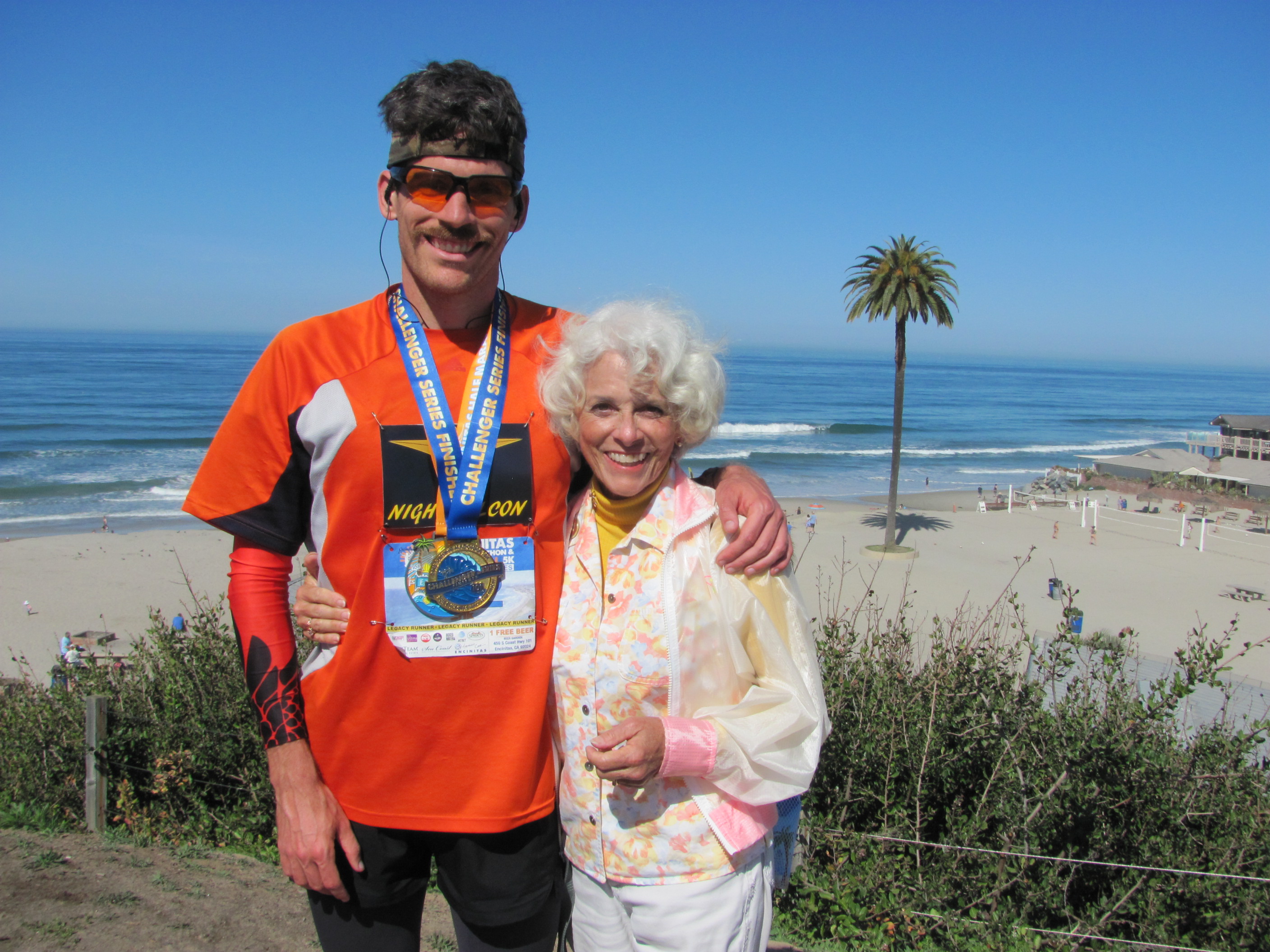
By Sara Gold
Eastman IP
 Erik Weber made headlines in 2015 for being the first student with autism to graduate from California Western School of Law and pass the bar exam. Now a fifth-year attorney, Weber advocates for special needs students and their parents to help them get their educational needs met.
Erik Weber made headlines in 2015 for being the first student with autism to graduate from California Western School of Law and pass the bar exam. Now a fifth-year attorney, Weber advocates for special needs students and their parents to help them get their educational needs met.
“I find special education law the most rewarding because I get to develop that trust with the students and with their parents,” Weber said. “I like to help the parents and school districts work as a team for the benefit of the student.”
Weber himself understands the struggle of being a student with special needs. A fever at two-and-a-half years old left him severely autistic and with no verbal communication skills. Doctors said that he would be permanently disabled and have to live in an institution for people with disabilities. But with support and patience from his parents and his teachers, Weber gradually bounced back to relearn verbal and social skills.
“It was a long work in process, but trust is key,” Weber said. “When my parents started figuring out what I needed, I felt like I could trust them more and I could make more attempts at verbal approximation.”
By the third grade, Weber started gaining more age-level vocabulary. He went from being two grade levels behind in school to eventually skipping the eighth grade and starting college classes in the tenth grade.
Researchers, fascinated by Weber’s unique brain, have studied him as part of autism brain studies. Starting in his twenties, Weber has participated in studies run by UC San Diego, Cal Tech, and other institutions.

Memorization has always been Weber’s strong suit. When he was in grade school, he enjoyed memorizing monologues by famous comedians and reciting them for his classmates. His knack for memorization has also served him well in his schooling. He earned his bachelor’s degree in international development studies at Point Loma Nazarene University and a master’s degree in public administration from San Diego State University. By the time he finished his master’s degree, he realized that his true passion was to help people with disabilities through law.
Weber attended California Western School of Law and graduated in 2014. Despite some challenges due to hand-writing difficulties and auditory processing delays, Weber thrived in law school. A favorite memory was performing a comedy routine in the school’s talent show, and he fondly remembers professor Michael Belknap for his great sense of humor.
During law school, he also wrote and published an academic paper exposing mistreatment of disabled individuals in state-run institutions. The paper was eventually received by state legislators and some state-run institutions were closed soon after, he says.
Since passing the bar exam in 2015, Weber has advocated for special needs students by reviewing their individualized education programs (IEPs) and doing legal research and document review. He also acts as a liaison between students and parents and their school districts, to ensure that the students receive the procedural and substantive rights that they are legally entitled to.
“There’s no such thing as one-size-fits-all when it comes to special needs; the devil is in the details,” Weber said. “When developing individualized education programs for students with disabilities, these plans need to be narrowly tailored to meet the student’s needs and must contain concrete goals that are specific enough to measure progress and enable schools and teachers to work toward those goals.”
A few years ago, Weber served on the California Office of Administrative Hearings Special Education Advisory Committee, comprised of attorneys, parents, and advocates who make policy recommendations. Currently, he serves on the California Western School of Law Alumni Association Board of Directors, along with the San Diego County Bar Association’s Committee for Diversity and Inclusion.
Weber remembers newly navigating the business aspect of being a solo attorney, from which he learned the importance of staying organized internally. He also advises law students and new attorneys “Ethics and trust are key, develop a good work-life balance, and stay active.”
As a kid, Weber discovered his love of running through his participation in Special Olympics running events. Since then, he continues to compete in marathons and other races, and he commits himself to running 13.2 miles three to four days per week. He has won at least 50 races outside of the Special Olympics and recently achieved a personal record of approximately three hours and twenty-six minutes for a marathon distance.
In addition to being a Special Olympics coach, Weber also leads a separate running team — the “Skybirds” — for children in San Diego with special needs. Weber and assistant coach Zach, a young adult with autism, coach the students on fitness and give general advice on navigating life.
“Running is my therapy — it helps me feel in control of my own destiny, like I am one with the road,” Weber said. “I hope the students are able to benefit from the same boost of confidence that running has given me.”
Feeling the speed of the wind on his face while running also nostalgically reminds Weber of riding on the back of his late father’s motorcycle when he was a kid. As an adult, Weber published his first book, Autism for Dads: The Importance of a Father’s Love, in honor of his father, who passed away when he was young.
“My dad was the perfect dad,” Weber said. “Autism for Dads encourages other fathers of children with autism to similarly come down to their child’s level and build a level of trust with the child.”
Weber’s second book, Changing Lanes But Staying on Track, is about his life story, including his struggles with autism and his athletic accomplishments. Both books are sold through Point Loma Nazarene University’s online bookstore.
Weber also shares his experiences as a motivational speaker through presentations at conferences, universities, and schools. When he is not speaking, running, or lawyering, Weber might be found playing Super Smash Brothers or Mario Kart, Zumba dancing, or digging into an “unlimited” cup of frozen yogurt from Yogurtland.
Ultimately he believes that perseverance and self-belief are the keys to success, “Believe that you can succeed, and don’t let fear of failure stop you.”
A very nice article. I met Erik n his mom in 2014 during Special Olympics competition. My son Mark is a new runner and Erik gave him tips and support even though we’re on different team. I admire his tenacity and will to win .
I learned a lot more about him reading this article. I admire him and his mom for being so involved helping athletes do the best they can.